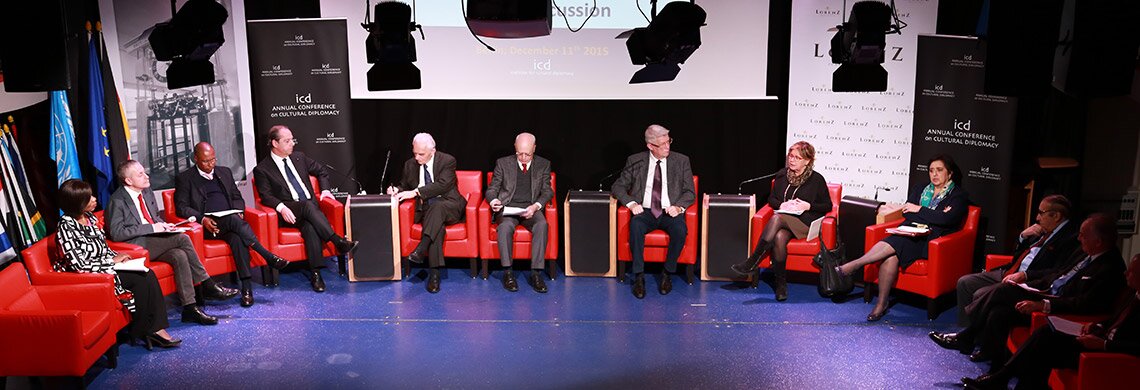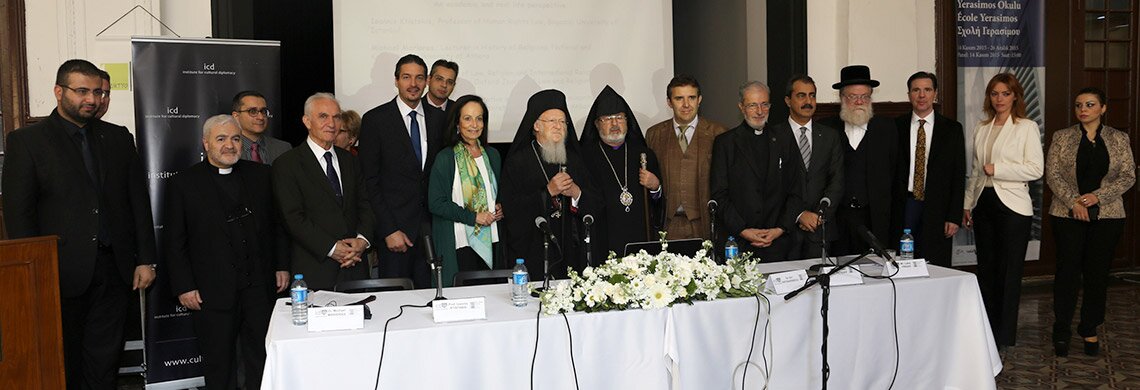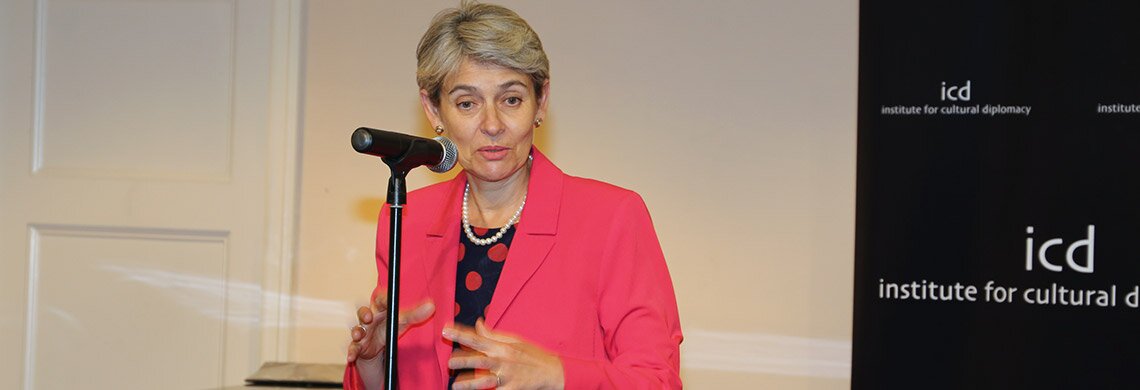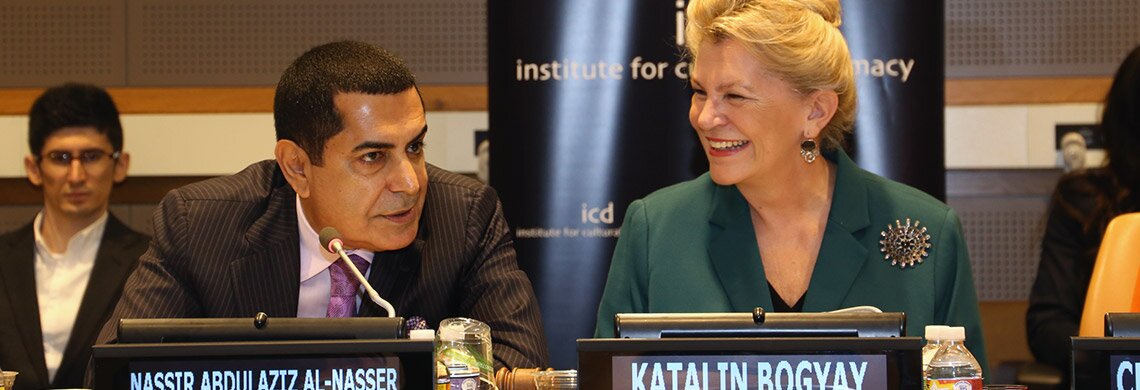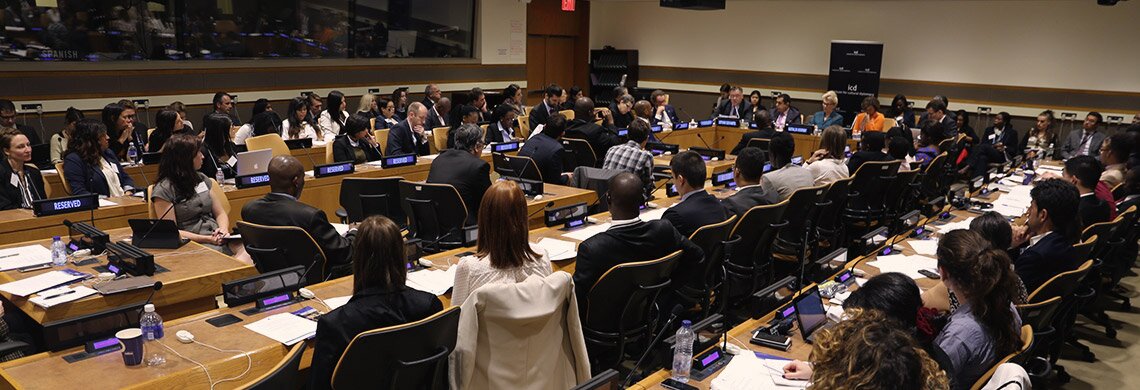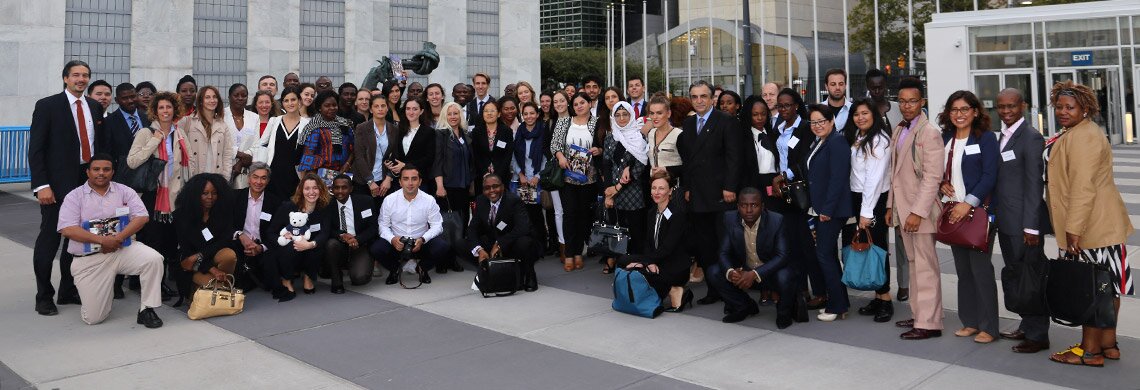"Begging, Human Rights and International Law"
A Lecture by Goran Lambertz, Judge of the Supreme Court of Sweden
(Cetinje, Montenegro; July 9th, 2014)
Biography
Judge Göran Lambertz is a Judge of the Supreme Court of Sweden. He graduated from Uppsala University with an LLB degree in 1976. He later served as a law clerk at the Uppsala District Court and was later appointed an Associate Judge of the Svea Court of Appeal in 1989. That same year, he received a post at the Swedish Justice Department as an undersecretary and Head of the Unit of Family and General Property Law. On October 1st 2001, he was appointed Attorney-General and held onto that post until 2009. He was then elected as one of the Justices of the Swedish Supreme Court on October 8th, 2009 and took office on November 16th, 2009.
Judge Lambertz was born in Kisa, Östergötland County. He now lives in Uppsala.
"Begging, Human Rights and International Law"
Lecture by Goran Lambertz, Judge of the Supreme Court of Sweden
1 Introduction
Since about a year now, every day I see people begging. They are in the railway station in Uppsala, the city where I live. They are everywhere in Stockholm, the city where I have my work place. And they are outside the store where I often stop to do some shopping on the way home in the afternoon. Most of them are Roma people, all of them are from south eastern Europe.
Also five years ago people – mostly Roma – came to Northern Europe from some countries in southern Europe to beg. But at least in Sweden the police sent them back to their countries of origin referring to a provision of Law according to which people from other countries were not allowed to stay in the country if they did not “make an honest living”. And the police considered that begging was not “making an honest living”.
That interpretation of the Law was, however, rejected in 2011. Since then it is OK for people to stay some time in Sweden even if they support themselves through begging. And the last year there has been what you can call an invasion.
Needless to say, this has brought along a lot of discussion. Some say: “Should they really be allowed to beg in the streets, these people are all over the place. They are a disturbance!” Others say: “This gives us something to think about. Just throwing these poor people out of our country, or prohibiting them to beg, can´t be a good solution.”
There are of course questions of an ethical nature involved: Should one give money or not? Should the beggars be given shelter, and maybe even some support? Should they be allowed to stay in their caravans out in the woods or in parking places? Shouldn´t their home country take care of them so that they don´t need to beg? Should we show them dislike, or should we show them pity? Or maybe sympathy? Should they be ignored or observed, maybe highlighted?
From a law perspective, particularly an international law perspective, we need to ask ourselves at least three questions that concern the beggars:
1. Can a State prohibit begging, or is it perhaps a human right to beg in the streets? Is it at least a right for EU citizens to do it in the EU countries as part of the freedom to move about in Europe?
2. Could begging be stopped indirectly, for example on the ground that it is so degrading to beg that States have a duty to stop people from doing it? Do States perhaps have a human rights obligation to give their citizens reasonable living conditions, so that there will be no need to beg?
3. Is there, or should there be, a right not to be confronted with beggars?
I will concentrate on these questions, particularly the first two: 1. Is it a human right to beg, and 2. Is it a human right to have living conditions that will make it unnecessary to beg?
First some words about international law and EU law on these issues and about national law in some countries. Then I will try to answer the questions along with some remarks and suggestions. And I will put at least two questions on the table for discussion.
2 International and EU law relating to poverty and begging
2.1 Universal Declaration on Human Rights
Early after the United Nations were founded, already in 1948, there was an agreement among the states to adopt The Universal Declaration on Human Rights.
In article 3 it is stated: Everyone has the right to life, liberty and security of person.
And in article 25.1 it is stated: Everyone has the right to a standard of living adequate for the health and well-being of himself and of his family, including food, clothing, housing and medical care and necessary social services, and the right to security in the event of unemployment, sickness, disability, widowhood, old age or other lack of livelihood in circumstances beyond his control.
2.2 International Covenant on Economic, Social and Cultural Rights
Another UN instrument of great importance when we speak about this subject is The International Covenant on Economic, Social and Cultural Rights (CESCR). CESCR was adopted in 1966 and entered into force in 1976.
Article 1.1 states: All peoples have the right of self-determination. By virtue of that right they freely determine their political status and freely pursue their economic, social and cultural development.
And article 11.1 states: The States Parties to the present Covenant recognize the right of everyone to an adequate standard of living for himself and his family, including adequate food, clothing and housing, and to the continuous improvement of living conditions. The States Parties will take appropriate steps to ensure the realization of this right, recognizing to this effect the essential importance of international co-operation based on free consent.
2.3 Council of Europe Convention on Human Rights
In the Council of Europe Convention on Human Rights from 1950, there are mainly four provisions which should be brought to focus when concerns protection against poverty and all that it brings with it:
Article 2: Everyone´s right to life shall be protected by law. [---]
Article 3: No one should be subjected to torture or to inhuman or degrading treatment or punishment.
Article 8.1: Everyone has the right to respect for his private and family life, his home and his correspondence.
[Article 8.2: There shall be no interference by a public authority with the exercise of this right except such as is in accordance with the law and is necessary in a democratic society in the interest of national security, public safety or the economic wellbeing of the country, for the prevention of disorder or crime, for the protection of health or morals, or for the protection of the rights and freedoms of others.]
Article 14: The enjoyment of the rights and freedoms set forth in this Convention shall be secured without discrimination on any ground such as sex, race, colour, language, religion, political or other opinion, national or social origin, association with a national minority, property, birth or other status.
2.4 EU free movement directive
The EU directive on the right of citizens of the Union and their family members to move and reside freely within the territory of the Member States (free movement directive, from 2004) contains rules on free movement within the European Union and the other EEA countries.
Article 6 gives rules on right of residence for up to three months: Union citizens shall have the right of residence on the territory of another Member State for a period of up to three months without any conditions or any formalities other than the requirement to hold a valid identity card or passport. – This applies also to family members who are not nationals of a Member State but who are accompanying or joining the EU citizen.
There is a prerequisite in article 14.1 however: Union citizens and their family members shall have the right of residence provided for in Article 6, as long as they do not become an unreasonable burden on the social assistance system of the host Member State.
And there is one other possibility for a Member State to refuse EU citizens access to their countries. This is if there are sufficient grounds of public policy, public security or public health. Rules on this are contained in article 27:
Article 27.1: Subject to the provisions of this Chapter, Member States may restrict the freedom of movement and residence of Union citizens and their family members, irrespective of nationality, on grounds of public policy, public security or public health. These grounds shall not be invoked to serve economic ends.
Article 27.2: Measures taken on grounds of public policy or public security shall comply with the principle of proportionality and shall be based exclusively on the personal conduct of the individual concerned. Previous criminal convictions shall not in themselves constitute grounds for taking such measures.
– The personal conduct of the individual concerned must represent a genuine, present and sufficiently serious threat affecting one of the fundamental interests of society. Justifications that are isolated from the particulars of the case or that rely on considerations of general prevention shall not be accepted.
Article 7 contains rules of right of residence for more than three months for citizens (and their family members) who can support themselves financially in the country where they wish to reside. (The rules are of course more detailed, but there is no need to cite them now.)
--
These are the most interesting international legal instruments relating to begging and to poverty in general. Now some words about the laws and the views in some of the countries concerned by the begging because beggars have appeared there at a rather large scale.
3 National law and national views
3.1 Begging is mostly not prohibited by law
Most countries do not prevent people from begging unless the begging involves for example threats, fraud, gross misleading conduct, trafficking in children or other human beings or molestation. This is true even if the begging is organized; it is not prohibited.
Sometimes there is a slim line between trafficking and organized begging, and sometimes the begging may involve conduct which could be regarded as misleading. But for the purpose of this presentation I leave those difficulties aside. This means I take it as a prerequisite for my talk that there is no trafficking, no molestation, and no misleading conduct from the beggars´ side. And this in fact seems to be in line with reality as far as the begging is concerned which is now taking place in Northern Europe. Those people seem to know the laws and the risks involved in breaking the laws.
There are exceptions to this principle that begging is not prohibited. And I know of one country where it is not only forbidden but even criminalized. (There may be others, but if there are I have not gotten to know of them as I have made my research for this presentation.) That exception is Australia. There, begging is prohibited by law and even made a crime. There has been a lot of discussion about this in the last ten years in Australia, but so far no change has occurred.
3.2 Sweden and Romania
In Sweden, as I said, the police threw out beggars from the country in the year 2010. The ground for this was that the police considered begging was not ”an honest way of making a living”. This practice was seriously criticized by the Swedish Parliamentary ombudsman in 2011. There was no ground to find begging ”a dishonest way of making a living”, said the ombudsman. So there was no ground for throwing the beggars out of the country.
The ombudsman also noted the 2004 EU directive on free movement of people. He said that in this case he had no reason to test the police actions against the directive, as there was no ground even in national Swedish law for the expulsions. But even if there had been ground in Swedish law, it is very likely according to the Ombudsman that it would have been prohibited according to the directive. If that is the case, EU law protects beggars from being thrown out of the country unless there is some specific ground for it (article 27.2 of the directive).
After this decision by the Ombudsman the police changed its practice. So now beggars are allowed to stay. And the same is true for prostitutes, who for some time were also thrown out of Sweden on the ground that they did not make their living in our country in an honest way. (In Sweden prostitution is not prohibited, but it is a criminal act to buy sexual services, and of course also to organize prostitution.)
Many of the beggars in Sweden come from Romania and almost all of them – maybe even all – are of Roma descent. Therefore there were a few meetings between representatives of the Swedish and Romanian governments regarding the beggars and their living conditions in Romania. But as far as was reported in Sweden, these discussions did not bring about any results.
The last report from Romania to the UN Committee on the economic, social and cultural rights is from 2013. There the government of Romania is reporting some positive action as far as the conditions of Roma in Romania concerns. Nothing is said specifically about the fact that many of them leave the country to go begging in northern Europe. And nothing is said about the possible need to improve their living conditions as to make it unnecessary for them to beg.
3.3 Norway
Norway is affected by the “begging tourism” to about the same extent as Sweden. There, a law was passed in May of this year to give the municipalities the right to forbid begging within the municipality borders. And at the same time it was stated that work was to be carried out in order to possibly make it a nationwide prohibition. I do not know if that would include making begging a crime, or if it would only give the police the right to prevent begging and maybe throw people of out the countries. We will see what happens.
Norway, being an EEA State, is bound by the EU free movement directive. So, for Norway to have the right to stop people from coming to their country to beg, the EU directive needs to allow for this.
3.4 The USA
In the United States of America a law was passed a few years ago in the state of Michigan to prevent begging, the so called Michigan anti-begging law. The law criminalized even peaceful holding up a sign saying for example “I need help”. This legislative act was however taken to Court by two men who had been arrested for breaking the law. And on August 14 of 2013 a federal appeals court declared the act unconstitutional. (The case did not go to the Supreme Court of the United States.)
The reason for the verdict was that the Michigan act violated the First Amendment of the US Constitution, the right to free speech. It had earlier been made clear that it would be unconstitutional to prohibit soliciting / begging for money for good causes, for example the Red Cross or the Unicef asking for money for their aiding arrangements. Now it was made clear that it is also protected speech to ask for help for yourself.
It is clear, therefore, that peaceful begging can not be declared illegal by law in the United States.
4 Is it a human right to be able to beg?
There is no explicit provision in international law to give people the right to beg. At the same time there is no provision of the opposite.
But there is a right to life. So if it could be shown that someone needs to beg to be able to live, he or she could probably show that in his or her case it is a human right to be able to beg. It may also be that there is a right to beg if this is considered a prerequisite for the person to make a reasonable living for himself or herself or for the family. That, however, is very unclear. And it will in any case be very difficult to draw the line as to what should be considered “reasonable” or “adequate”.
I do not think that the US free speech principle could be applied in Europe. The protection of free speech in general is very strong in the USA, not quite that strong in Europe.
In the European Union, and all of the EEA, I think it is reasonably clear that begging can not be used as a ground for throwing people out of the country. As we have seen earlier, Article 27 of the Directive on free movement of individuals states that measures taken on grounds of public policy or public security shall comply with the principle of proportionality and shall be based exclusively on the personal conduct of the individual concerned. The personal conduct of the individual concerned must represent a genuine, present and sufficiently serious threat affecting one of the fundamental interests of society.
Restrictions on the right to stay in a Member State must also not be discriminating. In a judgment of 2002 the EU Court stated that a Member State must not take measures against a citizen of another Member State invoking the exception on public order because of behaviors which the Member State does not try to prevent when concerns its own citizens.
I think it is fair to assume that begging is not a sufficiently serious threat on the fundamental interests of society to allow for throwing people who beg in the street out of the country. As far as I know, this has not been tried by any court in an EEA State, but I do believe that in this respect begging is protected by EU (including all of EEA) law. And it could be said, therefore, that it is in some respect a human right in the EEA to beg.
5 Is it a human right not to have to beg?
Let us look at the provisions in the three international law instruments mentioned above. Is there a chance that an international court, or other international organ, would come to the conclusion that it is in fact a human right to have living conditions which make in unnecessary to beg?
These are the most relevant provisions:
Article 25.1 of the UDHR: Everyone has the right to a standard of living adequate for the health and well-being of himself and of his family […].
Article 11.1 of CESCR: The States Parties to the present Covenant recognize the right of everyone to an adequate standard of living for himself and his family, including adequate food, clothing and housing, and to the continuous improvement of living conditions.
Article 3 of ECHR: No one should be subjected to torture or to inhuman or degrading treatment or punishment.
There is one case from the European Court of Human rights which to some extent concerns this issue. It is the case of Moldovan and Others v. Romania (judgment of 12 July 2005). The Court found that the living conditions of some Roma persons in Romania, combined with the racial discrimination they had been subjected to in the way the various authorities had dealt with their grievances after three Roma men had been killed in riots, amounted to degrading treatment. The Court accordingly concluded that there had been a violation of Article 3. (See particularly paragraphs 103 and 110 of the judgment.)
We do not know to what extent very poor living conditions in themselves could be enough to amount to degrading treatment according to Article 3. But at least in extreme cases I believe this to be the case. People cannot be forced to live under unreasonably bad conditions.
So: It is not a human right not to have to beg. But if someone who is protected by the European Convention on Human Rights can show that he or she has in practice been forced to live under extremely bad conditions for a considerable amount of time, and the State has done nothing about it, he or she should be able to win a law suit against the State.
6 Should people have the right not to be confronted by beggars?
Some people are heard to sometimes state that “it ought to be a right not to have to see these people around”. But this is absolutely not an interest which is protected by human rights. It would be very strange if it were, and the answer is nothing but obvious.
A more relevant question is: Should it still be a right – even if it is not a human right – for ordinary people to sometimes not have to be confronted with begging? There are of course boundaries for how close the beggars can be allowed to come to you, and for their behaviour, but now we are talking about begging per se.
Particularly when you want to have a good and relaxing time you should maybe have the right not to have people beg you for help. And there may be some places where you should not have to be confronted with beggars and begging.
It is not an altogether easy question to answer how the national or local law makers should reason when it comes to issues like this. But since it is not a human right issue we do not have to deal with it today.
7 Summary and final words
In summary:
1. Begging is probably protected by EU law in the sense that the free movement directive does not allow for police or other authority action against beggars in the EU Member States in order to have them thrown out of the country. And this includes all of the EEA. – Outside of the EU I do not think that we can say that it is a human right to be able to beg. However, if a person can show that begging is a condition for him or her to live it is probably protected.
2. It is a human right to have adequate living conditions. But that does not mean that it is a human right to have such conditions that you do not need to beg. But I believe it is fair to say that a State can be in violation of international law if it does not make sure that its citizens have conditions that are at least better than the very worst. It is of course difficult to know where the line is to be drawn, but we can be reasonably sure that there is such a line.
3. It is certainly not a human right not to be confronted with beggars and begging. It is difficult to say to what extent it is still reasonable to put some restrictions in law to begging.
--
It would be interesting to have the situation of some Roma people in southern Europe tried in the European Court of Human Rights. It is possible that some of them would be able to show that their Government is in violation of their human rights.





